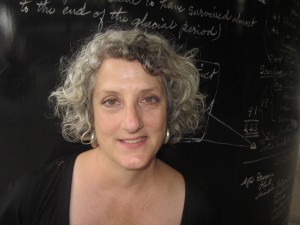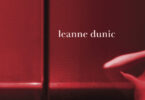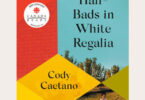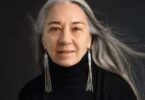I’d like to introduce you to one of the contributors to Plenitude’s inaugural issue: 2012 Journey Prize nominee, Nancy Jo Cullen.
Andrea Routley: You were recently nominated for the 2012 Journey Prize for your story, “Ashes.” Can you tell us about that experience?
Nancy Jo Cullen: Being nominated for the Journey Prize is so effing fantastic. I was giddy for days. The Journey Prize anthologies publish some great writing and it’s truly an honour to be a part this year’s anthology.
AR: You have three books of poetry out, but you also write fiction, and have a short story forthcoming in Plenitude. When do you write poetry, and when do you write prose?
Well, I haven’t written much poetry in the past few years. I’ve more or less just written a poem as it came to me but didn’t sit down to write poems. I’ve been focusing on prose fiction and it’s not easy for me to split my attention. However recently, I’ve been working on a poetry project and a prose project but I tend to work in chunks of time, a week on poetry, one week on prose. Even that is a little disjointed and there are periods when I have to stay on one task while the other waits. Right now prose is getting a little more attention than poetry but I’m very excited about my current poetry project.
AR: In 2010, you were awarded the Dayne Ogilvie Prize, a Canadian prize given to “an LGBT writer who demonstrates great promise through a body of work of exceptional writing.” Can you tell us about that experience? Did this kind of recognition affect your writing?
NJC: Winning the Dayne Ogilvie Prize was something that came right out of left field. I was completely dumbfounded when Don Oravec from The Writer’s Trust called me. There is no nomination process. The jury reads work and selects a winner. So, I didn’t know I was in the running, plus I just assumed I was too old to be considered, as the term “emerging writer” make me think of someone under 35. Of course, writers emerge at any age and the Dayne Ogilvie Prize recognizes this.
At the time, I had just gone through a moment of wondering if I should try to be a different kind of writer than I am because making a living is so difficult. So, I’d had this little soul searching moment which ended with me deciding, fuck it, I’ll write what I want and let the chips fall where they may. I got the call just days after that process. Winning the Dayne Ogilvie Prize was definitely an affirmation.
AR: What do you feel are the challenges (or advantages) unique to queer writers when it comes to writing and publishing?
NJC: I think the writing life is a crap-shoot. Much of my writing career has involved writing poetry, which is already largely ignored regardless of sexual orientation or gender. I prefer to think of myself as a writer who is queer, who is a woman rather than a queer/woman writer. That being said, I’m much more interested in the stories of queer people and women as a writer. We are often told that “universal” is something queer writing isn’t – I call BS on that. If we’re writing about loss and longing or whatever other human emotion queer people feel like any other human breathing on this planet then we’re writing universal stories.
Will it hold my fiction back to continue to write about queer people? (From what, big publishing houses, award short lists?) Possibly. Quite frankly, it takes so much energy and planning for me to write (I’m parenting two rather typical teenagers at the moment) that that’s where I like to spend my energy. I’ve had good luck with publishers. Two years ago, if you asked me who I wanted to publish my collection of short stories, I would have told you Biblioasis. And they are. I think the challenge is always to finish work and stay true to one’s self. It won’t be easy and it’s probably for certain not fair but I’m doing it anyway.
AR: Do you have any advice for LGBTQ writers?
NJC: Well, I think it’s important that writers, queer or otherwise, write the stories they want to tell. So much time as a writer is spent toiling away by yourself trying to stay positive about your project that I really believe you have to write the story that drives you. Trust your voice, follow your gut, and strive for excellence. And build a genuine community, a place where you like to be, with people you like to be with.
AR: How about readers?
NJC: Read widely. Read people you don’t know. Don’t restrict all your reading to prize list books, so many good books come out every year that never make any lists, sometimes because smaller publishers can’t afford to enter their books into something like the Giller prize. If you can, support independent book sellers. Usually, the people who work at independent book stores read books and can help you find something new and exciting.
AR: You mentioned you have another book coming out. Can you tell us about that?
NJC: I have a collection of short stories called Canary that is coming out next spring with Biblioasis. I am working on a novel and a collection of poetry.
Thank you to Nancy Jo Cullen for taking the time to share her thoughts and experiences with us!
You can read Nancy’s story, “Valerie’s Bush,” in Issue 1, coming out late-August. Subscribe today!







